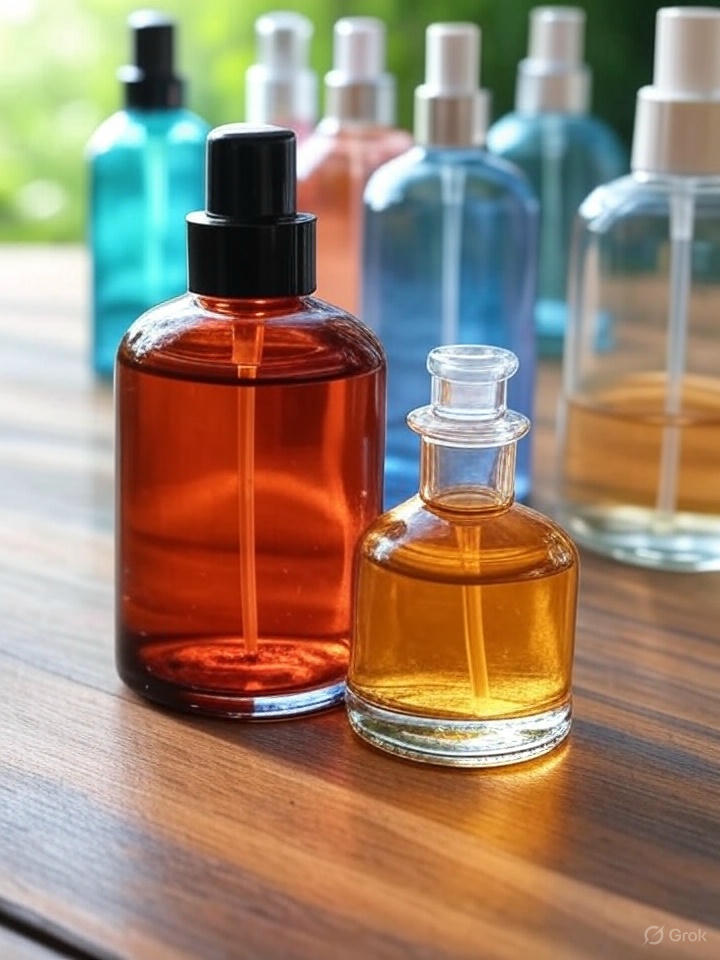Acne scars and hyperpigmentation are common skin concerns that can be difficult to manage. After an acne breakout, many people are left with dark spots or scars that seem to linger long after the pimple itself has healed. While numerous treatments are available, antioxidant serums have emerged as a promising solution. But do these serums actually help reduce acne scars and hyperpigmentation? Let’s dive into how antioxidants work on the skin and whether they can aid in fading those stubborn marks.
What Are Antioxidant Serums?
Antioxidant serums are skincare products formulated with ingredients that help neutralize free radicals in the skin. Free radicals are unstable molecules that can cause oxidative stress, leading to damage of skin cells and collagen, which may result in premature aging, skin irritation, and even hyperpigmentation. Common antioxidants found in serums include Vitamin C, Vitamin E, niacinamide, and green tea extract. These ingredients can protect the skin from environmental stressors like UV radiation and pollution, which often contribute to skin issues such as acne scars.
How Do Antioxidants Help with Acne Scars?
1. Promote Collagen Production
One of the key ways antioxidants can aid in reducing acne scars is by encouraging collagen production. Collagen is essential for skin healing and the formation of healthy skin cells. When acne scars form, the skin’s collagen levels are disrupted, which may result in uneven skin texture. Antioxidants like Vitamin C are known to boost collagen production, helping to repair damaged skin and smooth out the appearance of scars over time.
2. Reduce Inflammation
Inflammation is one of the primary causes of acne. It can also contribute to the darkening of skin after an acne breakout, leading to post-inflammatory hyperpigmentation (PIH). Antioxidants such as niacinamide and green tea extract have anti-inflammatory properties, which can help soothe the skin, reduce redness, and prevent the formation of dark spots. By calming the skin, antioxidants can prevent further pigmentation from forming, helping to fade existing spots.
3. Brighten Skin Tone
Some antioxidants, particularly Vitamin C, are well-known for their brightening effects. Vitamin C works by inhibiting melanin production, which is the pigment responsible for dark spots. By reducing melanin production, antioxidants help lighten hyperpigmentation and uneven skin tone caused by acne. Regular use of antioxidant serums can result in a more even and radiant complexion, diminishing the appearance of acne scars over time.
The Role of Antioxidants in Treating Hyperpigmentation
Hyperpigmentation occurs when the skin produces too much melanin in response to triggers like acne, sun exposure, or skin injury. This leads to the formation of dark spots or patches on the skin. Antioxidants can play a significant role in treating hyperpigmentation, especially by targeting the factors that contribute to increased melanin production.
Vitamin C, for example, not only reduces melanin synthesis but also helps repair the skin by improving its overall health. Niacinamide, another powerful antioxidant, can help lighten existing hyperpigmentation by inhibiting the transfer of pigment to the skin’s surface. Additionally, antioxidants can protect the skin from further UV-induced damage, preventing the darkening of scars and spots.
Which Antioxidants Are Best for Acne Scars and Hyperpigmentation?
- Vitamin C: Arguably the most popular antioxidant for brightening and healing, Vitamin C helps repair sun damage, brighten dark spots, and stimulate collagen production. Look for serums with stabilized forms of Vitamin C, like ascorbic acid or its derivatives, to ensure effectiveness.
- Niacinamide: Also known as Vitamin B3, niacinamide is known for its ability to reduce inflammation, lighten hyperpigmentation, and improve skin texture. It is an excellent choice for individuals with sensitive skin or those prone to irritation.
- Retinol: While technically a form of Vitamin A, retinol has antioxidant properties and promotes cell turnover, helping to fade acne scars and improve skin texture. It can accelerate the healing process by stimulating the production of new skin cells.
- Green Tea Extract: Rich in polyphenols, green tea extract is another antioxidant that soothes the skin, reduces inflammation, and fights free radical damage. It is beneficial for sensitive skin types that need a gentler option for scar healing.
How to Use Antioxidant Serums for Best Results
For the best results, incorporate antioxidant serums into your skincare routine after cleansing and before applying your moisturizer. Use the serum once or twice a day, depending on the instructions provided by the product. Ensure you apply sunscreen during the day, as antioxidants can make your skin more sensitive to the sun, increasing the risk of pigmentation.
Conclusion
Antioxidant serums can be a valuable tool in your skincare routine if you’re dealing with acne scars and hyperpigmentation. By promoting collagen production, reducing inflammation, and brightening the skin, these serums can significantly improve the appearance of your skin over time. Whether you choose Vitamin C, niacinamide, or other antioxidants, consistency is key to achieving noticeable results. Pairing these serums with good skincare habits, like using sunscreen and gentle exfoliation, can help you restore an even, glowing complexion. learn more here – https://uk.mederbeauty.com/collections/serums

